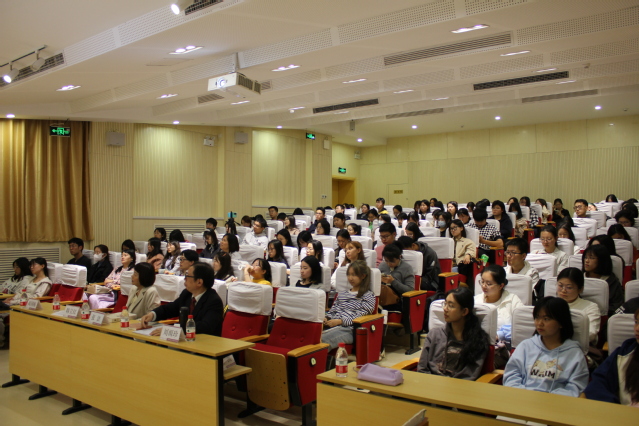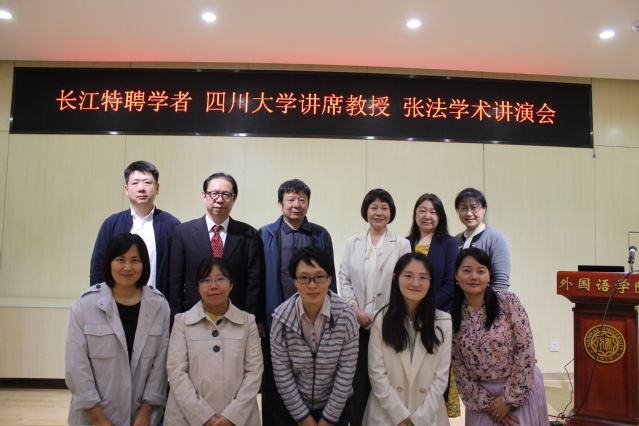On October 19, Professor Zhang Fa, Chair Professor of Liberal Arts from Sichuan University gave a lecture at Nankai University. Professor Yan Guodong, Dean of the College of Foreign Languages, and Professor Wang Kai, Deputy Dean of the College, attended the event. Also present were over 200 participants, either on the scene or online, including members of the Virtual Teaching and Research Section for Japanese History and Social Culture of the Ministry of Education, the East Asian Cultural Research Center, and faculty and student representatives from the Japanese Department.

The lecture, titled “The True Essence of Classical Chinese Poetry”, grabbed much attention from the attendees. Professor Zhang offered a profound illustration analysis of the true essence of classical Chinese poetry from a unique perspective. As opposed to the views of Western and modern Chinese literature theories, classical Chinese poetry transcends literature and art, seeping into every aspect of Chinese life, making it a universal existence in Chinese culture, but unique from Western poetics. To an extent, it represents one of the most important channels to understand the core of Chinese culture. Classical Chinese poetry involves an aesthetic feature known as “the image beyond an image, the scene beyond a scene”. At last, Professor Zhang analyzed the imaginary and actual elements in Wang Changling’s poem, “On the Frontier” (Chinese: 出塞). His analysis focuses on the fictional-realistic structure of the poem, thereby emphasizing that classical Chinese poems’ aesthetic feature is rooted in its culture, which is also one of the most important approaches to understand Chinese culture.

In the Q&A session, attendees were keen to put forward questions in a lively atmosphere. Professor Zhang’s explained profound theories with simple terms, which enlightened the whole discussion.
Professor Liu Yuzhen, Director of the East Asian Cultural Research Center commented that “Professor Zhang offered a systematic illustration with quality references to demonstrate that allows us to fully appreciate the beauty of classical Chinese poetry. China is the land of poetry, and poetry has commonality in the Chinese character cultural circle in East Asia, and people in East Asia write poems for both communication and entertainment. We look forward to Professor Zhang’s next visit to Nankai University.” In the end, Professor Han Lihong, Director of the Japanese Department, on behalf of all teachers and students, thanked Professor Zhang Fa for his wonderful lecture. She encouraged students to draw on the lectures delivered by famous scholars, also the faculties to strive to be good educators and good researchers with the aspiration that “great literature is for a thousand ages, whether it succeeds or not, you know in the heart.”

Professor Zhang mainly engages in research of aesthetics and intellectual history. He has published 22 books written by himself, 5 books written in collaboration with others, and 6 books issued under his general editorship. Five of them, including Chinese and Western Aesthetics and Cultural Spirit, have been incorporated into the national-level foreign translation project, and a number of his books have been published overseas. What’s more, he has published nearly 400 papers, among which 18 are reprinted by Xinhua Digest, and 136 are photocopied by China Social Science Excellence and other database websites.



